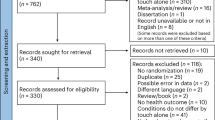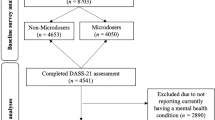Abstract
Background:
Research has documented negative stigma by health providers toward overweight and obese patients, but it is unknown whether physicians themselves are vulnerable to weight bias from patients.
Purpose:
This study assessed public perceptions of normal weight, overweight or obese physicians to identify how physicians’ body weight affects patients’ selection, trust and willingness to follow the medical advice of providers.
Methods:
An online sample of 358 adults were randomly assigned to one of three survey conditions in which they completed a questionnaire assessing their perceptions of physicians who were described as normal weight, overweight or obese. Participants also completed a measure of explicit weight bias (Fat Phobia Scale) to determine whether antifat attitudes are associated with weight-related perceptions of physicians.
Results:
Respondents reported more mistrust of physicians who are overweight or obese, were less inclined to follow their medical advice, and were more likely to change providers if the physician was perceived to be overweight or obese, compared to normal-weight physicians who elicited significantly more favorable reactions. These weight biases remained present regardless of participants’ own body weight. Inspection of interaction effects revealed opposing effects of weight bias between the obese/overweight and normal-weight physician conditions. Stronger weight bias led to higher trust, more compassion, more inclination to follow advice, and less inclination to change doctors when the physician was presented as normal weight. In contrast, stronger weight bias led to less trust, less compassion, less inclination to follow advice and higher inclination to change doctors when the physician was presented as obese.
Conclusions:
This study suggests that providers perceived to be overweight or obese may be vulnerable to biased attitudes from patients, and that providers’ excess weight may negatively affect patients’ perceptions of their credibility, level of trust and inclination to follow medical advice.
This is a preview of subscription content, access via your institution
Access options
Subscribe to this journal
Receive 12 print issues and online access
$259.00 per year
only $21.58 per issue
Buy this article
- Purchase on Springer Link
- Instant access to full article PDF
Prices may be subject to local taxes which are calculated during checkout


Similar content being viewed by others
References
Puhl R, Heuer CA . The stigma of obesity: a review and update. Obesity 2009; 17: 941–964.
Puhl RM, Brownell KD . Bias, discrimination, and obesity. Obesity Res 2001; 9: 788–905.
Brownell KD . Introduction: The Social, Scientific, and Human Context of Prejudice and Discrimination Based on Weight. Weight Bias: Nature, Consequences, and Remedies. Guilford Press: New York pp 1–11 2005.
Brown I . Nurses’ attitudes towards adult patients who are obese: literature review. J Adv Nursing 2006; 53: 221–232.
Huizinga MM, Cooper LA, Bleich SN, Clark JM, Beach MC . Physician respect for patients with obesity. J Gen Intern Med 2009; 24: 1236–1239.
Huizinga MM, Bleich SN, Beach MC, Clark JM, Cooper LA . Disparity in physician perception of patients’adherence to medications by obesity status. Obesity 2010; 18: 1932–1937.
Puhl RM, Brownell KD . Confronting and coping with weight stigma: an investigation of overweight and obese adults. Obesity 2006; 14: 1802–1815.
Price JH, Desmond SM, Krol RA, Snyder FF, O’Connell JK . Family practice physicians’ beliefs, attitudes, and practices regarding obesity. Am J Prev Med 1987; 3: 339–345.
Schwartz MB, Chambliss HO, Brownell KD, Blair SN, Billington C . Weight bias among health professionals specializing in obesity. Obes Res 2003; 11: 1033–1039.
Flegal KM, Carroll MD, Kit BK, Ogden CL . Prevalence of obesity and trends in the distribution of body mass index among US adults, 1999–2010. J Am Med Assoc 2012; 307: E1–E7.
Manson J, Willett W, Stampfer M, Colditz GA, Hunter DJ, Hankinson SE et al. Body weight and mortality among women. N Engl J Med 1995; 333: 677–685.
Ong L, de Haes J, Hoos A, Lammes F . Doctor-patient communication: a review of the literature. Social Sci Med 1995; 40: 903.
Hash RB, Munna RK, Vogel RL, Bason JJ . Does physician weight affect perception of health advice. Prev Med 2003; 36: 41–44.
Rogers LQ, Gutin B, Humphries M, Lemmon CR, Waller JL, Baranowski T et al. A physician fitness program: enhancing the physician as an ‘exercise’ role model for patients. Teaching Learning Med 2005; 17: 27.
Pipe A, Sorensen M, Reid R . Physician smoking status, attitudes toward smoking, and cessation advice to patients: an international survey. Patient Educ Counsel 2009; 74: 118.
Zhu D, Norman IJ, While AE . The relationship between health professionals’ weight status and attitudes towards weight management: a systematic review. Obesity Rev 2011; 12: e324–e337.
Bleich SN, Bennett W, Gudzune K, Coope L . Impact of physician BMI on obesity care and beliefs. Obesity 2012; 20: 999.
Smith DR, Leggat P . An international review of tobacco smoking in the medical profession: 1974–2004. BMC Public Health 2007; 7: 115.
Hull S, DiLalla L, Dorsey JK . Prevalence of health-related behaviors among physicians and medical trainees. Acad Psychiatry 2008; 32: 31–38.
Frank E, Breyan J, Elon L . Physician disclosure of healthy personal behaviors improves credibility and ability to motivate. Arch Fam Med 2000; 9: 287–290.
Feller DB, Hatch R . Do physicians take care of their health? Physicians’ personal health behaviors, good or bad, can influence their patients. Psychiatr Ann 2004; 34: 762.
Combs A, Snygg D . Individual Behavior: A Perceptual Approach to Behavior. Harpers & Brothers: New York, 1971.
Yanover T, Thompson J . Weight ratings of others: the effects of multiple target and rater features. Body Image 2010; 7: 149–155.
Kinnersley P, Stott N, Peters T, Harvey I, Hackett P . A comparison of methods for measuring patient satisfaction with consultations in primary care. Fam Pract 1996; 13: 41–51.
Bacon JG, Scheltema KE, Robinson BE . Fat phobia scale revisited: the short form. Int J Obesity 2001; 25: 252–257.
Enders CK . Applied Missing Data Analysis. Guilford: New York, 2010.
Rubin DB . Multiple Imputation for Nonresponse in Sample Surveys. Wiley: New York, 1987.
National Heart L, and Blood Institute. How are overweight and obesity diagnosed? 2011, http://www.nhlbi.nih.gov/health/health-topics/topics/obe/diagnosis.html (retrieved 21 December 2011).
Ubink-Veltmaat LJ, Damoiseaux RAJM, Rischen RO, Groenier KH . Please, let my doctor be obese. Diabetes Care 2004; 27: 2560.
O'Brien KS, Puhl RM, Latner JD, Azeem SM, Hunter JA . Reducing anti-fat prejudice in preservice health students: a randomized trial. Obesity 2010; 18: 2138–2144.
Daníelsdóttir S, O’Brien KS, Ciao A . Anti-fat prejudice reduction: a review of published studies. Obesity Facts 2010; 3: 47–58.
Kuczmarski MF, Kuczmarski RJ, Najjar M . Effects of age on validity of self-reported height, weight, and body mass index: findings from the Third National Health and Nutrition Examination Survey, 1988–1994. J Am Diet Assoc 2001; 101: 28–34.
Puhl RM, Andreyeva T, Brownell KD . Perceptions of weight discrimination: Prevalence and comparison to race and gender discrimination in America. Int J Obesity 2008; 32: 992–1000.
Acknowledgements
This research was supported by a grant from the Rudd Foundation.
Author information
Authors and Affiliations
Corresponding author
Ethics declarations
Competing interests
The authors declare no conflict of interest.
Rights and permissions
About this article
Cite this article
Puhl, R., Gold, J., Luedicke, J. et al. The effect of physicians’ body weight on patient attitudes: implications for physician selection, trust and adherence to medical advice. Int J Obes 37, 1415–1421 (2013). https://doi.org/10.1038/ijo.2013.33
Received:
Revised:
Accepted:
Published:
Issue Date:
DOI: https://doi.org/10.1038/ijo.2013.33
Keywords
This article is cited by
-
Associations among enacted weight stigma, weight self-stigma, and multiple physical health outcomes, healthcare utilization, and selected health behaviors
International Journal of Obesity (2023)
-
Sedentary behaviour among general practitioners: a systematic review
BMC Family Practice (2021)
-
Are Medical Students Prepared to Model Healthy Behaviors for Their Future Patients? A Survey Comparing Aged-Matched Peers
Medical Science Educator (2020)
-
Why people engage in a weight loss intervention at their workplace - a stratified case study
BMC Public Health (2019)
-
Why Australia needs to define obesity as a chronic condition
BMC Public Health (2017)



